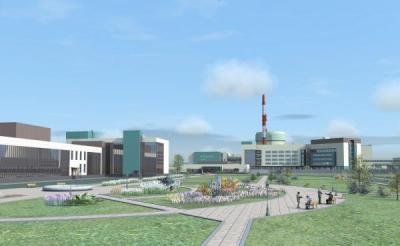Information
Belarus honors nuclear safety commitments
Legal foundation
The Republic of Belarus is party to international treaties and conventions, which are related to nuclear and radiation safety, and fulfills the measures they stipulate.
The number includes:
* Convention on Early Notification of a Nuclear Accident and Convention on Assistance in Case of a Nuclear Accident or Radiological Emergency;
* Convention on the Physical Protection of Nuclear Material;
* Nuclear Weapons Non-Proliferation Treaty;
* Agreement between the Republic of Belarus and the International Atomic Energy Agency on using safeguards in view of the Nuclear Weapons Non-Proliferation Treaty of 31 August 1995;
* Vienna Convention on Civil Liability for Nuclear Damage;
* Convention on Nuclear Safety;
* Convention on Access to Information, Public Participation in Decision-making and Access to Justice in Environmental Matters;
* Joint Convention on the Safety of Spent Fuel Management and on the Safety of Radioactive Waste Management;
* Convention on the Environmental Impact Assessment in a Transboundary Context.
Honoring commitments in practice
The Republic of Belarus fully honors its commitments resulting from the abovementioned treaties and conventions. Every month nuclear materials and plants of the Republic of Belarus are inspected together with the IAEA.
National reports on fulfilling the Convention on Nuclear Safety and the Joint Convention on the Safety of Spent Fuel Management and on the Safety of Radioactive Waste Management have been compiled and presented.
Control over the export of fresh and irradiated nuclear fuel of the movable nuclear power plant Pamir 630D to the Russian Federation has been enabled as well as the import of low-enriched nuclear fuel for research apparatus of the state-run United Nuclear and Energy Research Institute Sosny.
Important facts in brief:
Non-proliferation of nuclear weapons is an important task, which requires international cooperation and stronger trust at all levels – the bilateral, regional, and global ones. The Nuclear Weapons Non-Proliferation Treaty of 1968 is one of the instruments used to achieve the goal.
Belarus has been party to the Treaty since 1993. In line with the Treaty as a non-nuclear country Belarus undertakes not to make or purchase nuclear weapons or other explosive nuclear devices. Belarus undertakes not to solicit or accept aid in manufacturing such devices. In line with the Treaty Belarus undertook to sign the agreement with the International Atomic Energy Agency (IAEA) to enable IAEA control over all the nuclear materials and prevent their use for manufacturing explosive nuclear devices.
The agreement between the Republic of Belarus and IAEA on using safeguards in view of the Nuclear Weapons Non-Proliferation Treaty (the agreement on safeguards) came into force in 1995. In line with the agreement Belarus declared the location, characteristics, and the usage of all the nuclear materials and the equipment that uses the materials. Belarus undertook to enable IAEA inspections of all such nuclear materials and equipment.
Since its inception the system of IAEA safeguards has been growing stronger thanks to regular introduction of new methods and ways to raise its effectiveness and functionality. In 1997 the IAEA worked out a supplementary protocol to the agreement on safeguards.
Source: Nuclear and Radiation Safety Department of the Belarusian Emergencies Ministry

 print version
print version